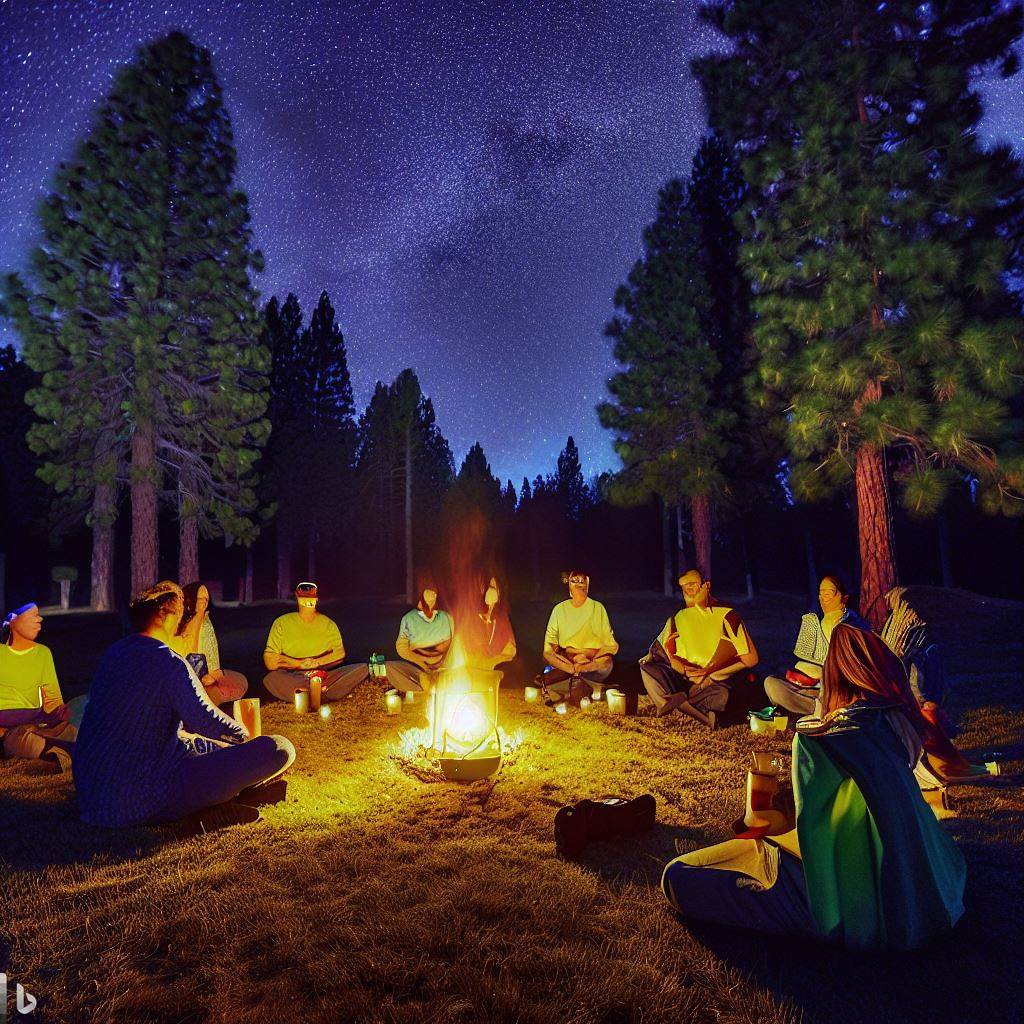
In the vast cosmos of spirituality, the teachings of spiritual gurus act as a lighthouse, guiding seekers toward self-realization and spiritual enlightenment. The wisdom that these gurus impart is not confined to any religion or creed but transcends boundaries, touching the core of human existence.
Understanding the Role of a Spiritual Guru
Gurus, or spiritual teachers, play an instrumental role in guiding individuals on the path of spirituality. They act as a beacon, shedding light on the areas of our existence often shrouded in darkness. They offer guidance, clarity, and profound teachings that awaken the inherent wisdom within every seeker.
The Core Principles of Guru Teachings
Though the spiritual gurus may come from diverse backgrounds, their core teachings converge on certain universal principles. These principles include the understanding of self, the practice of mindfulness, embracing compassion, and the pursuit of transcendental knowledge.
Understanding of Self: The Key to Unlocking Inner Wisdom
The first principle of guru teachings, the understanding of self, is more than a mere acknowledgment of our earthly existence. It’s a profound realization that beneath the layers of our physical, emotional, and mental selves, lies an eternal entity, pristine and untouched by the tribulations of life. This is the essence of our being, the nucleus of our existence. It’s like a treasure buried deep within, waiting to be discovered. Spiritual gurus guide us to uncover this treasure, leading us to understand that we are not just mortal beings living a human experience, but spiritual entities on a human journey. This understanding sets the stage for self-realization and spiritual awakening, serving as the foundation of all spiritual growth.
Mindfulness: Living in the Now
Mindfulness, the second principle in guru teachings, is akin to the soft whisper of a breeze, gentle yet profound, guiding us to the heart of the present moment. It is the practice of living completely in the now, observing our thoughts, feelings, and actions without judgment. It’s like a gentle river that washes away the dust of past regrets and future anxieties, revealing the pristine beauty of the present. Spiritual gurus advocate the practice of mindfulness, stating that the present moment is not just a point in time, but a doorway to inner peace and self-awareness. They guide us to cultivate mindfulness in our daily lives, enabling us to navigate life’s challenges with grace and tranquility.
Embracing Compassion: A Portal to Universal Love
Compassion, the third principle of guru teachings, is the sun that melts the ice of indifference and selfishness, flooding our lives with warmth and love. It’s the recognition that all beings experience joy and suffering, and a desire to alleviate that suffering. Compassion transcends our individual existence, connecting us with the universal fabric of life. It’s a path that leads us from isolation to unity, from indifference to love. Spiritual gurus encourage us to embrace compassion in our thoughts, words, and actions, reminding us that in the garden of life, a compassionate heart is the most beautiful flower.
Transcendental Knowledge: The Quest for the Ultimate Truth
The pursuit of transcendental knowledge, the final goal, is a journey beyond the horizons of the known, into the realms of the mystical and the divine. It’s the quest for truths that transcend our mundane existence, propelling us into a space of wisdom and enlightenment. This knowledge is not simply an accumulation of facts or concepts, but an experiential understanding that transforms our perception of reality. Spiritual gurus guide us on this quest, acting as a bridge between the material and the spiritual, the known and the unknown, guiding us toward the ultimate truth.
In essence, the teachings of spiritual gurus, though diverse in their origins, converge to these universal principles, providing a roadmap for spiritual seekers on their journey towards self-realization and enlightenment. By understanding the self, practicing mindfulness, embracing compassion, and pursuing transcendental knowledge, we can unlock the doors to spiritual growth, and embark on a journey of self-discovery that ultimately leads us to inner peace and joy. As we tread this path, we are not alone. The wisdom of the gurus is with us, guiding us, nurturing us, and illuminating our path with their profound teachings.
Spiritual Guru Teachings: An Introspective Journey
Spiritual gurus guide us on an introspective journey, encouraging us to delve deep within ourselves. They inspire us to question our perceptions and beliefs, leading us toward a profound understanding of our true nature.
The Practice of Mindfulness: A Key Teaching of Spiritual Gurus
Mindfulness is a central concept in the teachings of many spiritual gurus. It entails being completely present in the moment, observing our thoughts, emotions, and actions without judgment. This section explores the depth and application of mindfulness in daily life.
Spiritual Gurus and the Concept of Universal Compassion
Spiritual gurus emphasize the importance of compassion towards all beings. This section elucidates the significance of universal compassion, its impact on our personal growth, and its role in fostering a harmonious global community.
Spiritual Gurus and The Quest for Transcendental Knowledge
Transcendental knowledge refers to wisdom beyond the grasp of conventional perception. Spiritual gurus inspire us to seek this profound knowledge, thereby leading us toward spiritual enlightenment.
The Impact of Spiritual Guru Teachings on Personal Transformation
The teachings of spiritual gurus can catalyze significant personal transformation. This transformation transcends the boundaries of personal growth, leading to the development of a more harmonious society.
Incorporating Spiritual Guru Teachings into Everyday Life
Applying the teachings of spiritual gurus in our everyday life can profoundly enhance our overall well-being. This section offers practical strategies for integrating these teachings into our daily routines.
Spiritual Gurus and Their Influence on Global Peace
The teachings of spiritual gurus emphasize love, compassion, and unity. These teachings can significantly influence global peace and harmony, fostering a more compassionate world.
Conclusion
The teachings of spiritual gurus offer timeless wisdom that transcends geographical and temporal boundaries. They provide a road map to personal transformation, leading us toward inner peace and spiritual enlightenment.
FAQs
- What is the role of a spiritual guru? A spiritual guru guides individuals on the path of spirituality. They offer teachings that awaken the inherent wisdom within every seeker, leading them toward self-realization and spiritual enlightenment.
- What are the core teachings of spiritual gurus? The core teachings of spiritual gurus include the understanding of self, the practice of mindfulness, embracing compassion, and the quest for transcendental knowledge.
- What is mindfulness in the context of spiritual guru teachings? Mindfulness is a key concept in spiritual guru teachings. It involves being fully present in the moment and observing our thoughts, emotions, and actions without judgment.
- What is the impact of spiritual guru teachings on personal transformation? Spiritual guru teachings can catalyze significant personal transformation, fostering personal growth and contributing to the development of a harmonious society.
- How can spiritual guru teachings influence global peace? Spiritual guru teachings emphasize love, compassion, and unity. These teachings can significantly contribute to global peace and harmony by fostering a compassionate and unified global community.
- How can I incorporate spiritual guru teachings into my everyday life? You can incorporate spiritual guru teachings into your everyday life by practicing mindfulness, embracing compassion, seeking transcendental knowledge, and striving for personal growth.



